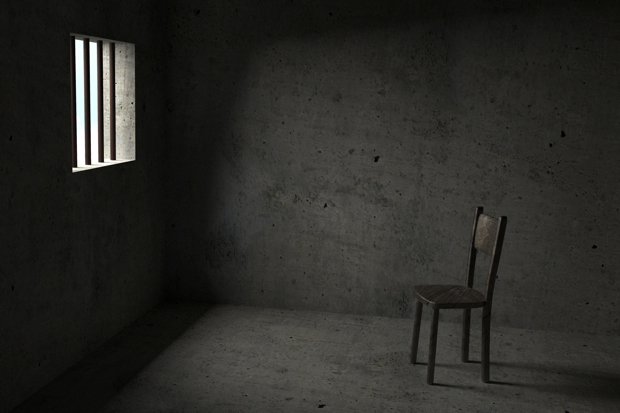‘Go to jail. Go directly to jail. Do not pass Go. Do not collect £200.’ said the Community Chest card in Monopoly. I was never sure what a Community Chest was, but it seemed American, like the spelling jail.
Those who love the spelling gaol, which combines characteristics of being very English yet outlandish, might be surprised to find that the Oxford English Dictionary prefers jail. There is a logical explanation.
Both spellings derive indirectly from the Latin cavus, ‘a hollow’, from which came Latin cavea, ‘a dungeon or cage’, and thence French cage and Italian gaggia (like the coffee machine). The changing of cavea into cage is paralleled by the Latin salvia developing into sage, or the late Latin rabia into rage. So far, so good.
But from the Latin diminutive caveola came two different forms in Old French: gaiole or gayole in Northern French and jaiole in Parisian French. So by the Middle Ages, English possessed two forms of the word: gayol, or the striking variant gayhole; and jaiole or jaile. It should be realised that the form gayol was pronounced with a hard g. In the spoken language, the form with a soft g triumphed. Nevertheless, in writing, thanks to legal language and official conservatism, the spelling gaol was preserved, even though everyone said ‘jail’ when they read the word aloud. In America, official documents favoured jail, which is why it still seems to us American, although the pronunciation, derived from Parisian French, was identical on both sides of the Atlantic.
Whatever the OED said, the Oxford University Press style remained gaol. The Guardian long persisted with gaol too but changed to jail in the 1980s, like the other English papers. The Economist Style Guide lists its preference for jail under the letter S, for ‘spellings’.
What we can never know is how documents from the 16th, 17th and 18th century expected readers to pronounce the spelling goal (in the sense of prison). Was it just a mix-up (like Jhon, a common medieval English spelling of John) or did it reflect a pronunciation parallel to the French geôle? Only some rhyming poetry or explicit discussion from those times can unlock that little mystery.
Got something to add? Join the discussion and comment below.
Get 10 issues for just $10
Subscribe to The Spectator Australia today for the next 10 magazine issues, plus full online access, for just $10.
You might disagree with half of it, but you’ll enjoy reading all of it. Try your first month for free, then just $2 a week for the remainder of your first year.















Comments
Don't miss out
Join the conversation with other Spectator Australia readers. Subscribe to leave a comment.
SUBSCRIBEAlready a subscriber? Log in